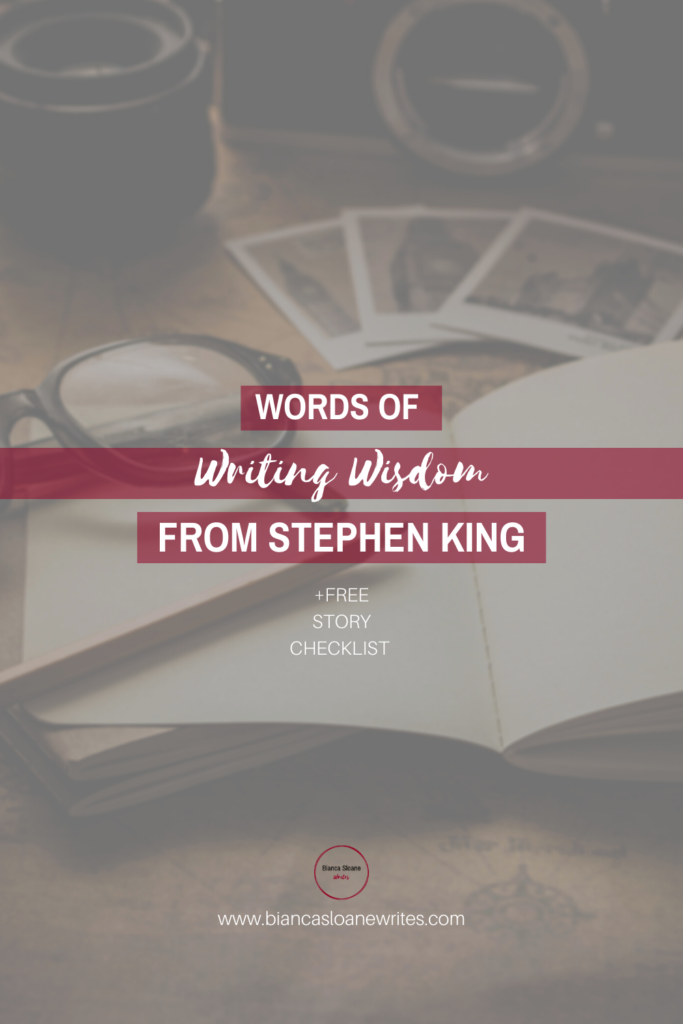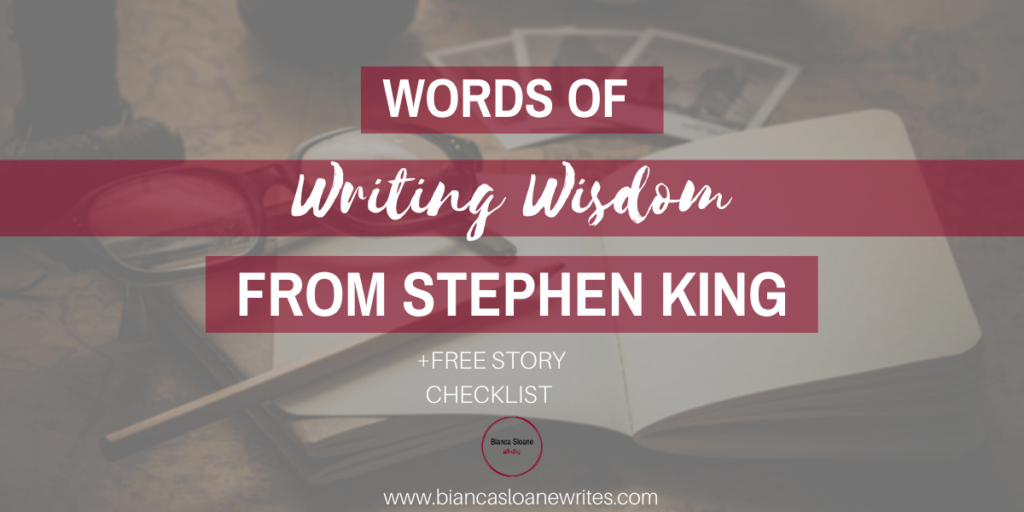Words of Writing Wisdom from Stephen King
Fact: There’s no shortage of books out there on the craft of writing.
Fact/Opinion: Make Stephen King’s “On Writing: A Memoir of the Craft” your first stop.

While I’ve only read a handful of Stephen King novels (Firestarter, Rita Hayworth and the Shawshank Redemption, Misery), I am an ardent devotee of “On Writing.” Nonfiction writers, fiction writers of any genre should read King’s instructional book about the craft. Sound, practical and entertaining, “On Writing” explores every facet of writing from grammar to dialogue to plot and the bugaboo, outlining (he doesn’t do it, dubbing himself a “situational” writer instead) while using examples from his own books to illustrate his points. It is, in a word, brilliant.
A few years ago, King gave an interview to “Parade” magazine (read it here) and it contains a lot of gems on the craft of writing. All writers, published or hoping to be, can benefit from his words of wisdom.
Just don’t let this be a substitute for reading “On Writing.” Because you should read it. All of it.

“You learn to write from reading.”
King says he used to pay his kids to read to him when they were younger, which was how they acquired the habit (coincidentally, two of his kids are successful novelists in their own right). He laments that kids today are too focused on the Kardashians to take reading seriously and it worries him. In “On Writing,” he talks about how his own nose is always stuck in a book and if “you don’t have time to read, you don’t have the time (or tools) to write.”
“Spell-check won’t [help] you if you don’t know through from threw.”
Preach it, Brother King. This is also a prime example of why trying to proof your own work is a bad idea and one that should be thrown out the window before it has a chance to take up residence in your house. Even if you have a proofreader, you need to know enough to know if they missed something, because it does happen. However, if you can’t even define what it is they missed, then you’re screwed.
It’s why music teachers make singers learn scales, why Mr. Miyagi had Daniel-Son waxing on and waxing off. Without the fundamentals, you can’t expect to become a master.
“The major job is … to entertain people”
King says what drives him to write his 1,500 words/five pages a day is the need to keep his work fresh, because otherwise, “the color will go out of it,” and that all creative types should remember we’re here to “sell fun.” Preachy, condescending writing that’s overwrought with messages is a turnoff. There is a way to weave education into the narrative (witness how John Jakes does this with his historical fiction or how John Grisham incorporates the law into his legal thrillers) without making the reader feel like they’re sitting in a hot classroom with the windows sealed shut.
Keep it colorful, keep it fresh, keep it entertaining.
“There’s no soft landing with Tabby, and that’s fine.”
“Tabby,” would be King’s wife, Tabatha, and his brutally honest, “IR” or Initial Reader” (read more about this in “On Writing.”)
When searching for your IR, don’t look for fawners … look for Tabbies.
When critiquing his work (and that of his two novelist sons), she doesn’t sugarcoat it and tell him what he wants to hear; she tells him what he needs to hear in order to make his work better. We all need a “Tabby” to tell us what’s working and what isn’t.
“I just [see] myself as a novelist.”
Above all, King sees himself as a writer. He tells his stories the way he wants to tell them and doesn’t worry about genres or commercial viability (though I’m sure he wrestles with self-doubt like we all do). He simply … writes. Every day. Without fail.
What is some of your favorite writing advice from Stephen King?

Pin this for later!

